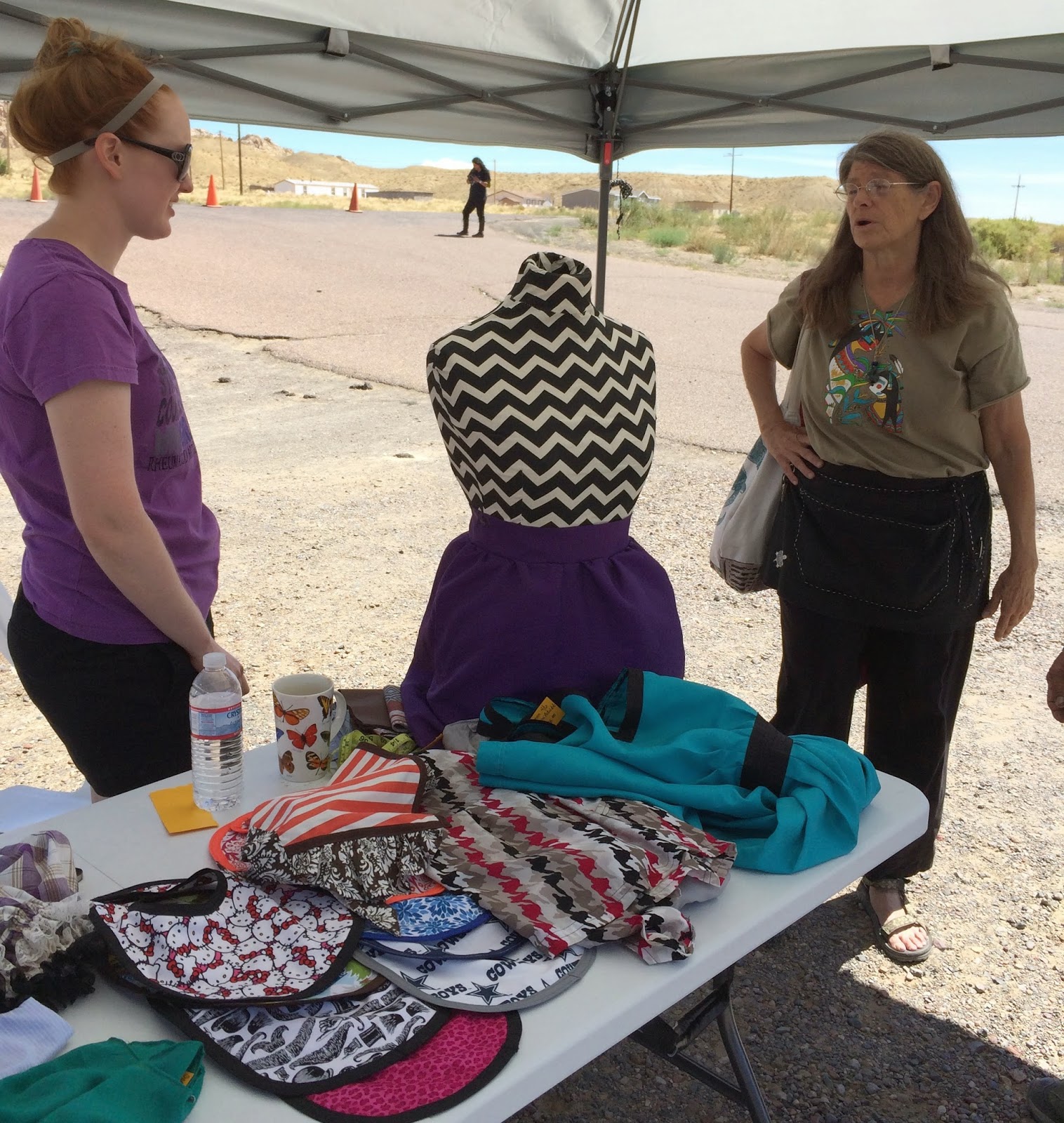Listening to Those Who Hope For You
By Susan Secakuku
(Written on Septmber 9, 2014 - but published on blog, October 29, 2014)
One of my favorite outings is when I visit the field (above)
of one of my mooyi (a clan nephew
found only within the Hopi kinship system). This same person is also a mu’unang (male in-law to my husband) and
therefore a pa’a (grandfather) to my
son. In Hopi, one person can be related to one family in three different ways.
But the point of this story, is he is a very good farmer and when I really want
to be amazed, inspired and realize the potential of a person, I visit his
field.
I find it best to visit now, in September, for many reasons.
The evenings are still long, the weather is perfect and the corn is ripening
and the beans, squash and melons are getting to their peak. It is a beautiful
time.
We
usually sit and visit. He expresses a detailed account of this season’s condition’s,
both the good and the bad. This year he is happy we are visiting again, but he
expresses his frustration at not probably getting much for all his work. “I am ready to release the horses into
my field and just let them have it,” he states. He planted several times, which
impacts your seed stock, not to mention your level of frustration. It was very
dry and the rains didn’t come early enough for the corn, so he won’t get much
this year. In the past, he has
hauled out many truckloads of corn, squash and melons. But like every good Hopi
farmer, he continues on nonetheless. It’s just what you are supposed to do.
Over the years I have learned much about Hopi farming from
him. I also learned more of the spoken Hopi language from him, as he speaks
more comfortably in Hopi and holds most of our conversations in Hopi.
He always encourages everyone around him to do their best.
So when he encounters my son, he does the same, encouraging him and talking to
him as if he is already the farmer he hopes him to be.
When we were there recently, my four-year old son found an
old wagon. Rusted, without wheels, but to my son it was perfect. My mooyi told him to take it home with him
and to use it to carry all his harvest home from our field or garden. My son nodded okay and we loaded it into our truck.
 Back home, over the next several days, he hauled the wagon
back and forth from our garden, even though it had no wheels. We would pick our
harvest and my son insisted that we load it onto the wagon, like his pa’a (grandfather) told him to. We
realized that my son not only heard what he was told, but intended to follow
through. The following week, his
dad purchased new wheels and put them on his wagon.
Back home, over the next several days, he hauled the wagon
back and forth from our garden, even though it had no wheels. We would pick our
harvest and my son insisted that we load it onto the wagon, like his pa’a (grandfather) told him to. We
realized that my son not only heard what he was told, but intended to follow
through. The following week, his
dad purchased new wheels and put them on his wagon.
I smile, as every night since then, my son confidently pulls
our harvest home in his wagon. As we walk, we loudly express our thanks for
what we have gotten today, yelling, “Askwali, Kwakwa! (thank you).” I am grateful that my son is surrounded
by those who come before him, who believe in him and address him as if he is
the farmer that we hope him to be.

















